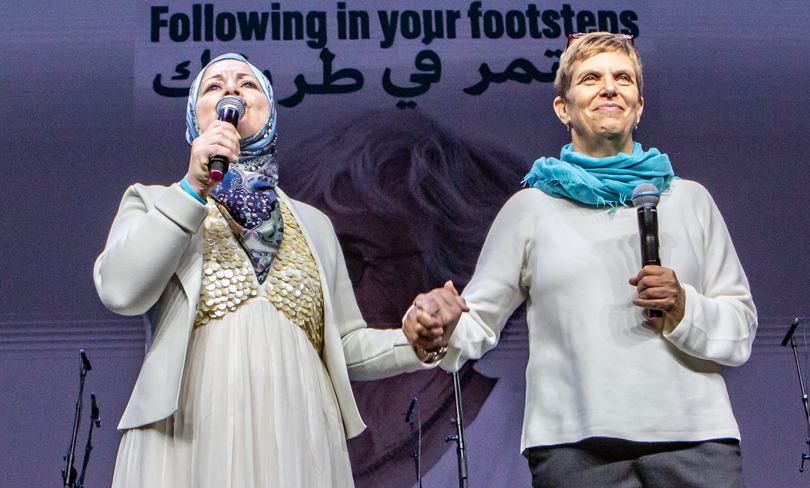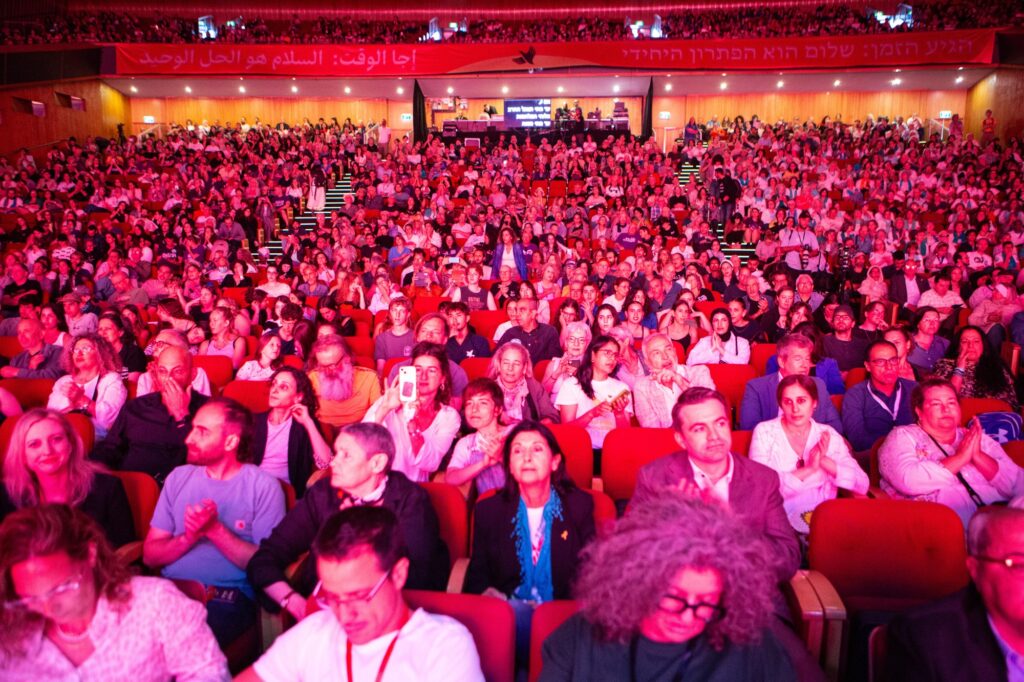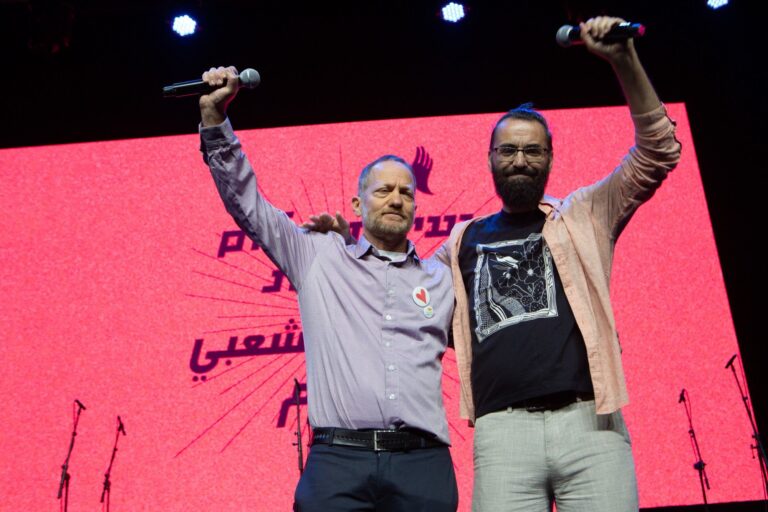
On May 8-9, something hopeful and beautiful took place in Jerusalem. The NIF Shatil-coordinated It’s Time Peace Coalition held the People’s Peace Summit in Jerusalem, which saw over 7,000 Jewish and Arab attendees across two days of events and activities. After 586 days of unrelenting grief, pain, and bloodshed, sharing a room with thousands of other people demanding an end to the violence and a better future provided both relief and a welcome breath of hope.
The event was funded by NIF and organized by Shatil’s Tami Yakira, who spearheads the It’s Time Coalition and the 60 diverse organizations it comprises. In a conversation with the Israeli outlet Local Call, she explained some of her reasoning for organizing the Summit. “In the face of such a horrifying and terrible reality,” she said, “each of us acts according to our best understanding to try to change it. It’s very important to call things by their name and not look away from the massive killing, starvation, and crimes being committed in Gaza—but it’s even more important to try to change that reality, to stop the war and the horrors, to build political power, and to try to climb out of the deep abyss we’re in. Finding the balance between the desire to reflect reality and hold up a mirror, and the desire to change reality and influence it, is an ongoing task. None of us has the exact formula. This [conference] is an open invitation to continue searching for that balance together.”

Thursday, the first day of the Peace Summit, aimed to “paint the city with the spirit and colors of peace.” It featured educational tours, film screenings, workshops, panels, and exhibits with both established and nascent cultural and educational institutions throughout the city. Participants were immersed in the language of peace and developed skills to insist on peace in their daily lives. At Hebrew Union College’s Jewish Institute of Religion, for example, family members of all ages participated in programs like “Draw Me Hope: An Art, Activism, and Nonviolence Workshop” and “Writer’s Space,” where they learned how to use stories of struggle to promote social justice and peace.
Early Thursday evening, internationally recognized peace activists Maoz Inon and Aziz Abu Sarah spoke to a fully-packed stadium about their initiative, Peace by 2030. Maoz, whose parents, Bilha and Yaacobi, were murdered on October 7th, and Aziz, who lost his brother in the First Intifada, described how they’ve transformed their personal experiences of loss and pain into calls for peace.
Reviving a peace effort requires honest relationships, they emphasized, “in order to build a real partnership, you need to be able to tackle the tough topics. It’s not true friendship if you’re afraid to ask the difficult questions.” To illustrate this point, Aziz shared a story about bringing his father to a peace event early in his activism, during which he asked an uncomfortable question about the use of the Holocaust—which he appeared to deny in some part—as justification for annexation of Palestinian land. Instead of reacting defensively, the event’s Jewish moderator saw the question for what it was—a learning opportunity. After the event, the moderator arranged for Aziz’s father (and other curious Palestinian peace activists) to visit Israel’s Holocaust museum, Yad Vashem, and a separate event for Jews to learn about the Nakba.

Even after a full day of festivities, the buzz of Jerusalem’s International Convention Center on Friday morning was palpable. Progressive NGOs, authors, and artists took over the first two floors of the Convention Center, selling peace-themed merch and speaking with thousands of participants about their work.
During the plenary session, victims of October 7th, Palestinian and Israeli peace and human rights activists, international guests, and artists called together, in both Hebrew and Arabic, to end the war, bring the hostages home, and insist on peace. In one somber moment, everyone present rose from their seats to stand in silence and honor every life we’ve lost since October 7th—Israeli and Palestinian alike.
“We’re not just saying no to the war. We’re saying yes to building a better, stronger peace camp,” shared one speaker. A testament to the urgency behind It’s Time’s initiative, the plenary included recorded messages from French President Emmanuel Macron, Palestinian Authority President Mahmoud Abbas, and Yair Golan, head of the Democrats party, and MKs from different parties. Afterwards, participants chose from various panel discussions, musical performances, and workshops led by peace activists and policy experts.
“Regimes fall, wars end,” Yakira said.
